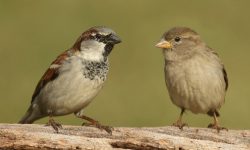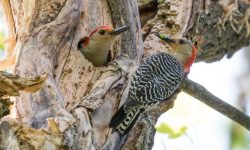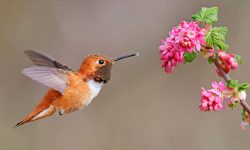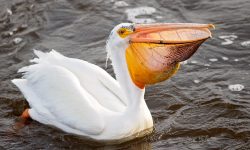Ducks are charming, versatile birds with a surprisingly broad appetite. Whether living wild on ponds or waddling through a backyard farm, ducks thrive on a diverse diet. From grains and greens to insects and fruit, each food group serves a special role in keeping ducks healthy, active, and thriving. Let’s explore the 10 favorite foods ducks love the most—and why each one matters.
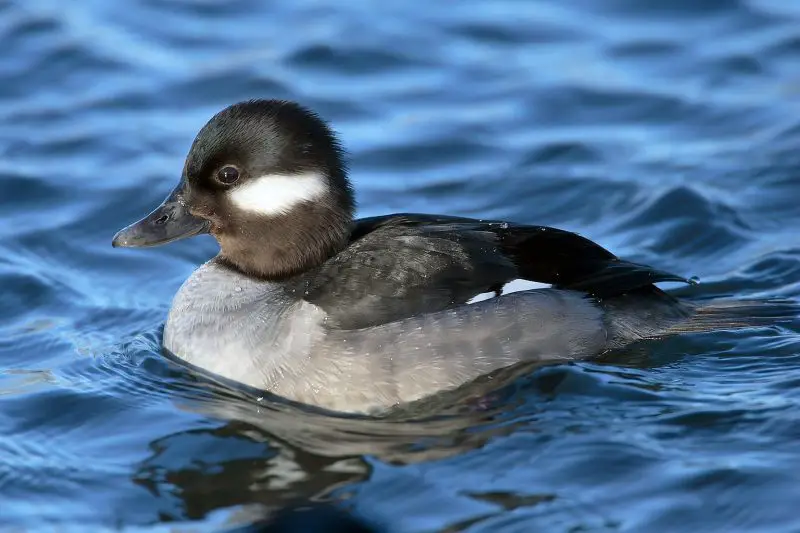
1. Corn and Cereal Grains: Energy-Rich Staples
Golden Grains That Keep Ducks Going
Few things excite ducks more than the crunch of grains beneath their bills. Cracked corn, barley, oats, and wheat are among their absolute favorites—not just for their taste but for the burst of energy they deliver.
Rich in carbohydrates, these grains act like natural fuel, keeping ducks active, warm, and full of vitality, especially during chilly mornings or long winter days. When natural food is scarce, a scatter of golden kernels across the ground becomes a lifesaving buffet.
Whether foraging in the wild or waddling through a backyard coop, ducks eagerly peck at:
-
Cracked corn for quick energy
-
Barley and oats for sustained fullness
-
Wheat kernels that blend well in mixed feed
In cold weather, this grain-based diet helps maintain body heat and stamina, giving ducks the power they need to forage, swim, and thrive. It’s no wonder that grains form the heart of a duck’s diet—simple, satisfying, and full of warmth.
2. Leafy Greens: Natural and Nutritious
Nature’s Salad Bar for Happy Ducks
If grains are the fuel, then leafy greens are the fresh crunch that keeps ducks feeling light, hydrated, and full of life. Ducks absolutely love nibbling on tender greens—whether it’s a patch of garden lettuce or a floating mat of duckweed on a calm pond.
Favorites include:
-
Lettuce and romaine for their mild flavor and moisture
-
Spinach and kale packed with nutrients like vitamin A and vitamin K
-
Duckweed, a floating water plant that’s practically made for ducks
These greens aren’t just tasty—they’re full of fiber, rich in antioxidants, and help support smooth digestion. Especially in warm weather, fresh greens provide natural hydration, acting like living water bottles that also feed.
You’ll often see ducks happily grazing:
-
In vegetable gardens, pecking around leafy beds
-
Along pond edges, where wild greens thrive
-
Even in backyard pens, if offered chopped salad treats
Feeding ducks leafy greens is one of the easiest ways to promote shiny feathers, strong immune systems, and healthy appetites—all with food that’s as natural as it is nutritious.
3. Insects and Worms: A Protein Powerhouse
Nature’s Meaty Morsels for Growing Ducks
While ducks may look gentle and serene, they’re surprisingly skilled hunters—especially when it comes to insects and worms. These wiggling, crawling, and buzzing creatures are rich in protein, making them essential for muscle development, feather regeneration (molting), and strong egg production.
In their natural habitat, ducks love to dig and dabble in soft mud, damp grass, or shallow water, where they hunt for:
-
Earthworms bursting with amino acids
-
Beetles and ants that crunch with nutrients
-
Grasshoppers offering energy-packed bites
-
Slugs and snails, soft-bodied and rich in minerals
This high-protein diet is especially crucial during breeding season or periods of feather replacement, when ducks need extra nutrition to stay strong and healthy. For ducklings, these tiny creatures are often their first major food source, jumpstarting growth with every bite.
Whether chasing a bug across a garden path or rooting through wet leaves for a juicy worm, ducks show their true forager instincts—making every insect a valuable part of their well-rounded diet.
4. Fruits: Sweet and Hydrating Treats
Juicy Delights Ducks Can’t Resist
When the sun is high and the days are warm, ducks crave more than just grains and greens—they crave fruit. Packed with natural sugars, water, and vitamins, fruits are like nature’s dessert tray, offering both flavor and hydration in every bite.
Some of their fruity favorites include:
-
Watermelon: a summer essential, bursting with moisture
-
Bananas: soft, sweet, and easy to digest
-
Strawberries: rich in antioxidants and a hit among ducks
-
Apples (chopped and seedless): crisp and refreshing
-
Grapes (cut in half): bite-sized energy boosters
These juicy treats help keep ducks cool, refreshed, and energized, especially during the hotter months. Just like with children and candy, moderation is key. Too much fruit can lead to weight gain or digestive issues, but offered occasionally, it’s a healthy indulgence.
Whether tossed into a pond or hand-fed in slices, fruits add variety and enjoyment to a duck’s day—turning snack time into a colorful, hydrating experience they look forward to.
5. Rice and Cooked Grains: Simple Yet Satisfying
Warm Comfort in Every Bite
Sometimes, the simplest foods are the most satisfying—and that’s especially true for ducks when it comes to cooked grains. Soft, warm, and easy on the digestive system, cooked rice, quinoa, and oatmeal are comforting staples that ducks readily enjoy.
When served plain and unsalted, these grains become a wholesome addition to a duck’s diet. They’re:
-
Gentle on the stomach, especially for ducklings or recovering birds
-
Perfect for cold weather, providing warmth and steady energy
-
Excellent for balancing high-fiber greens or heavier protein meals
Many duck owners offer warm bowls of cooked grains on chilly mornings, and the response is always the same—enthusiastic pecking and happy waddling. The texture is soft and appealing, making it easy for ducks of all ages to consume.
Whether it’s a scoop of plain oatmeal or a handful of steamed quinoa, these cooked grains are a satisfying treat that nourishes without overwhelming, helping maintain a healthy, well-rounded diet.
6. Aquatic Plants: A Taste of the Wild
Floating Feasts from Nature’s Water Garden
For ducks, nothing says “home” like the gentle sway of water plants on a quiet pond. In the wild, aquatic vegetation is a dietary treasure, offering flavor, nutrition, and instinctive satisfaction. Ducks glide across the surface, nibbling at floating greens that grow naturally in their watery world.
Common favorites include:
-
Duckweed: tiny but packed with nutrients
-
Water hyacinth: soft and fibrous, rich in minerals
-
Pondweed: widespread and easy to graze
-
Algae: a natural source of trace nutrients and fiber
These plants aren’t just convenient—they’re incredibly beneficial. Aquatic greens provide:
-
Essential minerals for feather health and bone strength
-
Digestive fiber to keep their systems running smoothly
-
A natural source of hydration, especially in warm climates
In backyard setups with ponds or water troughs, ducks often spend hours foraging, sifting through water plants with focused precision. It’s a behavior rooted in evolution—and a sign of a duck in its element.
Encouraging access to aquatic plants allows domestic ducks to express natural instincts while enjoying a balanced, wild-inspired diet.
7. Garden Vegetables: Crunchy and Colorful
Farm-Fresh Goodness in Every Bite
If you’ve ever dropped a chopped pea or carrot near a duck, you’ve likely seen their excitement firsthand. Garden vegetables are a crunchy delight, full of flavor, texture, and nutrition that ducks adore. These vibrant veggies not only taste great but also provide vital vitamins, minerals, and fiber to support robust health.
Top favorites on the duck veggie menu include:
-
Peas: sweet, bite-sized, and protein-rich
-
Cucumbers: cool and hydrating in summer heat
-
Zucchini: soft and easy to digest
-
Carrots (shredded or sliced): packed with beta-carotene
-
Pumpkin: seasonal, satisfying, and rich in antioxidants
Chopped into manageable pieces, these vegetables become a natural supplement to any duck’s diet—boosting:
-
Immune strength
-
Digestive health
-
Feather quality and overall growth
Offering fresh veggies a few times a week keeps mealtime exciting and adds colorful variety to the feeding routine. It’s a garden-to-bill connection that ducks truly relish.
8. Small Fish and Amphibians: Rare But Relished
A Wild Protein Boost Beneath the Surface
Though not a daily staple, small aquatic creatures like minnows and tadpoles offer ducks a powerful burst of protein when available. This behavior is most often seen in wild ducks, especially mallards, who seize the opportunity to snack on fast-moving prey beneath the water’s surface.
Ducks have been observed catching:
-
Minnows darting in shallow streams
-
Tadpoles wriggling near the pond edge
-
Small frogs, especially during breeding season
These animal-based foods are rich in amino acids, fats, and micronutrients, helping to:
-
Fuel egg production in breeding females
-
Strengthen feather condition during molting
-
Support ducklings’ rapid growth when insects are scarce
Though backyard ducks may not have regular access to fish or amphibians, those raised in natural ponds or free-range environments might occasionally indulge. In these moments, they show a hidden side of their omnivorous instincts—a hunter’s eye in a peaceful-looking bird.
These rare but relished snacks play a small yet meaningful role in the diverse, adaptable diet that makes ducks such successful foragers across habitats.
9. Grit and Small Stones: For Proper Digestion
The Unsung Heroes of a Duck’s Diet
They may not be flavorful or nutritious, but grit and tiny stones are absolutely essential to a duck’s health. Ducks don’t have teeth—so instead of chewing, they rely on their gizzard, a muscular part of their digestive system, to break down food. That’s where grit comes in.
Common types of grit include:
-
Fine sand
-
Tiny gravel
-
Crushed oyster shells (which also add calcium)
Once swallowed, these gritty materials settle into the gizzard, where they grind up hard seeds, grains, and fibrous plants into digestible pieces. Without enough grit, ducks can suffer from poor digestion, nutrient loss, and even dangerous blockages.
In the wild, ducks naturally pick up grit while foraging in soil or along pebbled shorelines. Domestic ducks, however, need access to supplemental grit, especially if they’re eating commercial feed, grains, or greens.
Though small and often overlooked, grit is the hidden engine behind a healthy digestive system, making it one of the most important elements in a duck’s diet—even if it isn’t technically “food.”
10. Commercial Duck Pellets: A Balanced Option
Precision Nutrition in Every Bite
For duck keepers who want consistency and convenience, commercial duck pellets are a smart, reliable choice. Specially formulated to meet the dietary needs of ducks, these pellets offer a balanced blend of protein, carbohydrates, vitamins, and essential minerals—all in a ready-to-eat form.
Ideal for ducks raised for:
-
Egg-laying, where calcium and protein demands are high
-
Meat production, where steady growth and weight gain are key
-
Year-round health, even when natural forage is limited
Pellets are particularly useful during:
-
Winter months, when vegetation and insects are scarce
-
Molting seasons, when ducks need extra nutrients
-
Rapid growth phases, especially in ducklings and juveniles
By eliminating the guesswork of portioning and mixing, pellets ensure ducks receive complete nutrition in every mouthful. While natural foraging and treats add variety, high-quality commercial pellets form a reliable dietary foundation for both backyard flocks and farm-raised birds.
Conclusion: Feeding Ducks with Variety and Care
A duck’s favorite foods range from earthy grains to watery greens and sweet fruits. Providing a varied diet ensures not just survival—but thriving health, glossy feathers, and vibrant energy. Whether you’re caring for backyard ducks or just enjoying feeding wild ones at the park, understanding what they love to eat is the first step toward deeper connection and responsible care.

